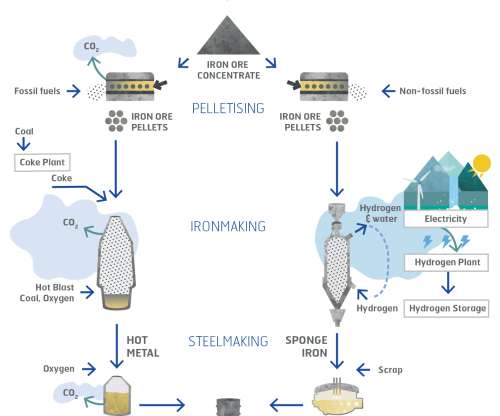HYBRIT JV planning to begin building demo plant for fossil-free steel in 2023
Green Car Congress
JUNE 2, 2020
The byproduct of using fossil-free electricity and hydrogen in steelmaking, instead of coke and coal, will be water instead of carbon dioxide. The HYBRIT initiative has been granted financial support from the Swedish Energy Agency. The initiative has the potential to reduce Sweden’s total carbon dioxide emissions by 10%.












Let's personalize your content